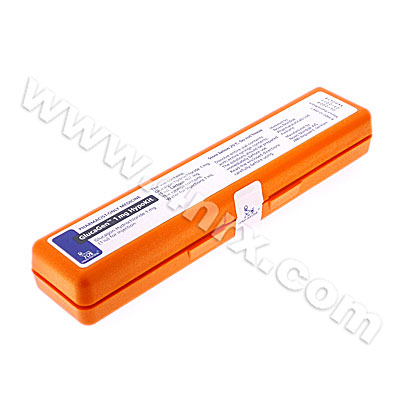 |
Home  Diabetes Diabetes  Glucagen Hypokit (Glucagon Hydrochloride) Glucagen Hypokit (Glucagon Hydrochloride) |
|
|||||||||
|
Glucagen Hypokit (Glucagon Hydrochloride)
What is Glucagen Hypokit (Glucagon Hydrochloride) used for? Glucagen Hypokit (Glucagon Hydrochloride) is given to diabetic and insulin dependent patients as an emergency treatment for insulin coma or severe hypoglycemia (low blood sugar), when the patient has become unconscious. It contains glucagon, a natural hormone which works by helping the body to convert glycogen into sugar in the liver. This in turn leads to glucose being released into the blood stream. It also stimulates the production of insulin by the pancreas. This drug may also be used during medical examinations of the gastrointestinal tract. How should I use Glucagen Hypokit (Glucagon Hydrochloride)? Glucagen Hypokit (Glucagon Hydrochloride) is given as an injection. Patients should consult their physician so that they can be instructed on how to properly administer it, and the dosage that is required in case of emergency. Patients should also teach friends, family and work colleagues how to use this medication should the patient become unconscious. You should keep this medication with you at all times. Emergency medical attention is required in case of severe hypoglycemia. What are the side effects of Glucagen Hypokit (Glucagon Hydrochloride)? Glucagen Hypokit (Glucagon Hydrochloride) may cause some side effects, such as vomiting, nausea and a rapid heartbeat. Other more serious side effects include breathlessness and loss of consciousness. You should always seek immediate medical attention after using this medication, and promptly inform your physician that you have administered glucagon. Please Note Strictly follow all instructions provided to you by your physician or pharmacist while using Glucagen Hypokit (Glucagon Hydrochloride). Optimum and safe dosage can differ based on the patient and the condition being treated. As this medication may be unsafe for certain patients, it is essential you always inform your physician if you are pregnant or breastfeeding, as well as if you have any allergies, other illnesses, or ongoing health conditions, and if you are taking any other form of medication, supplements, or herbal products. You should always ensure that you have been properly instructed by a physician on how to correctly administer this medication. Immediately seek emergency medical care if you have any allergic or hypersensitive reaction. Common signs of a reaction include hives, swelling, skin rashes, chest pains, as well as trouble breathing or swallowing. 
|
|||||||||||||||||